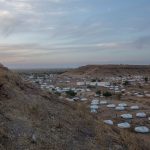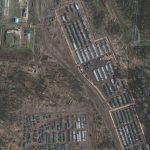Tokyo is hot in the summer. That’s why back in the 1964 Olympics they shifted events into October and the athletes enjoyed pretty much perfect temperatures.
The average was about 20C (68F). The warmest day was 23.3C (73.9F). Ideal for almost everyone.
These Games have been different in so many ways and are on track to be one of the hottest ever.
Please use Chrome browser for a more accessible video player
Just going for a short morning run in Tokyo, in a facemask (as most other runners do), it is energy sapping – for the athletes pushing their bodies to the absolute limits then it’s a dangerous game.
Every outdoor sport has had to adapt – the coaches and athletes have had to find the right balance between exertion and conserving energy.
The tennis players have been particularly angry that they’ve been out in such conditions. World number one Novak Djokovic said it was “brutal”.
Organisers did move events from the most intense heat at lunchtime but it hasn’t placated the complaints.
Djokovic said: “I’ve played tennis professionally now 20 years, and I’ve never faced these kind of conditions in my entire life on a consecutive daily basis.”
Next year’s World Cup in Qatar has already been shifted to November and December – even with air conditioned stadiums it’s still not safe to play in the searing heat of their summer.
Please use Chrome browser for a more accessible video player
These Olympic Games though will be remembered for all kinds of reasons – the heat will be just one of them.
The International Olympic Committee was desperate just to make these Games happen after all the upheaval of the pandemic, but picking a month that suits the weather makes so much sense.
They got it right in 1964 – and should think hard about it for Paris in 2024 and Los Angeles in 2028.
Subscribe to ClimateCast on Spotify, Apple Podcasts, or Spreaker.
Sky News has launched the first daily prime time news show dedicated to climate change.
The Daily Climate Show is broadcast at 6.30pm and 9.30pm Monday to Friday on Sky News, the Sky News website and app, on YouTube and Twitter.
Hosted by Anna Jones, it follows Sky News correspondents as they investigate how global warming is changing our landscape and how we all live our lives.
The show also highlights solutions to the crisis and how small changes can make a big difference.






















